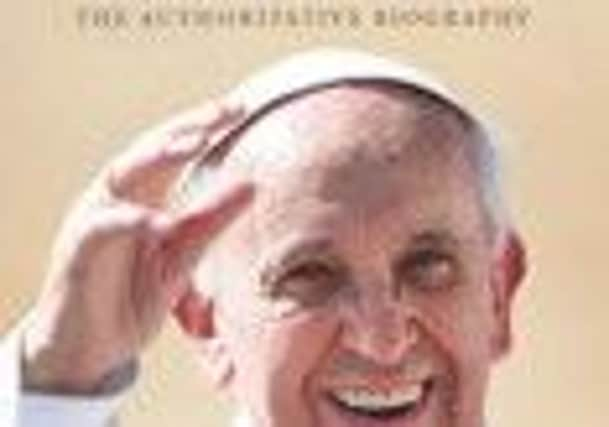Book review: The Great Reformer by Austen Ivereigh


The Great Reformer
by Austen Ivereigh
Allen & Unwin, 464pp, £20
In 1976, Jorge Mario Bergoglio – now Pope Francis – was head of Argentinia’s Jesuits when he came up against the thorny problem of how best to support two priests, Orlando Yorio and Franz Jalics, who had moved into a slum in Buenos Aires and were advocates for the poor in the face of brutal government opposition during Argentina’s so-called Dirty War.
When Yorio sought approval for his final vows as a Jesuit, suspicions about his work from other Jesuits meant that he received negative evaluations of his work. In the Vatican, there were even some who believed rumours that the two were linked with guerrillas, and so their community in the slums was ordered to be disbanded.
Advertisement
Hide AdAs a compromise, Bergoglio suggested they continue their work with the poor, but live in a nearby Jesuit community. Instead, the two priests decided to leave the Jesuits. Shortly afterward, they were captured and tortured by the junta. Bergoglio worked furiously behind the scenes, going to what Austen Ivereigh calls “extraordinary lengths” to secure their release.
Nonetheless, rumours persisted that Bergoglio had betrayed them. Until his death in 2000, Yorio remained bitter toward his former superior. Jalics, however, chose to remain a Jesuit and, ultimately, have a tearful reconciliation with his former provincial superior. By then, it had become clear that the two had been abducted because a lay teacher who had become a guerrilla had given up their names under torture. Bergoglio’s record in providing sanctuary for, and even smuggled out of the country, several people persecuted by the Argentine junta has also emerged.
CONNECT WITH THE SCOTSMAN
• Subscribe to our daily newsletter (requires registration) and get the latest news, sport and business headlines delivered to your inbox every morning
Ivereigh’s biography convincingly shows how the qualities that have made Francis a beloved pope have long been part of his life. While still a teenager, and earning his living as a doorman at a tango bar (yes, the pope likes to tango), he told a friend that he wanted to be a Jesuit so he could go out into the neighbourhoods “to be with people”.
Because of his popularity as Jesuit provincial, particularly among younger Jesuits, Bergoglio was seen as a threat by some. While running the archdiocese of Buenos Aires, Bergoglio showed the same impulse toward simplicity and love for the poor that have become the hallmarks of his papacy. He inveighed against priests who display “spiritual worldliness” and told an Argentine journalist: “In Gospel terms, every elevation implies a descent; you have to abase yourself in order to serve better.”
He was an innovative archbishop, reaching out to political leaders who opposed the church and establishing close friendships with Christian leaders, rabbis and imams. In 2004, he became the first bishop to visit the Islamic Center of the Argentine Republic. Ivereigh deftly shows that much as Pope Francis believe that the Holy Spirit, in the pope’s words, “changed” him after his election, the same radical openness that the world now sees in Vatican City characterised his life in Buenos Aires.
Advertisement
Hide AdIvereigh’s book is particularly good on Pope Francis’s Jesuit background and the effects of his provincialate on the Argentine province. There are times when you wish for a firmer editor’s hand (for example, in the lengthy descriptions of Argentine politics) and greater sourcing. And there are a few inaccuracies. A few journalists mentioned Bergoglio as a likely candidate to become pope, but Ivereigh says “none” of the Vaticanologists listed him. But overall, this book is fair, judicious and compelling.
Even though I’ve read several books on Pope Francis, many stories about him in this one were new to me. The most revealing was a throwaway line about where the archbishop of Buenos Aires liked to spend his free time. Mainly in the slums, one colleague said. “It nourished him, being with ordinary people.” I can think of no better background for being pope.
SCOTSMAN TABLET AND IPHONE APPS